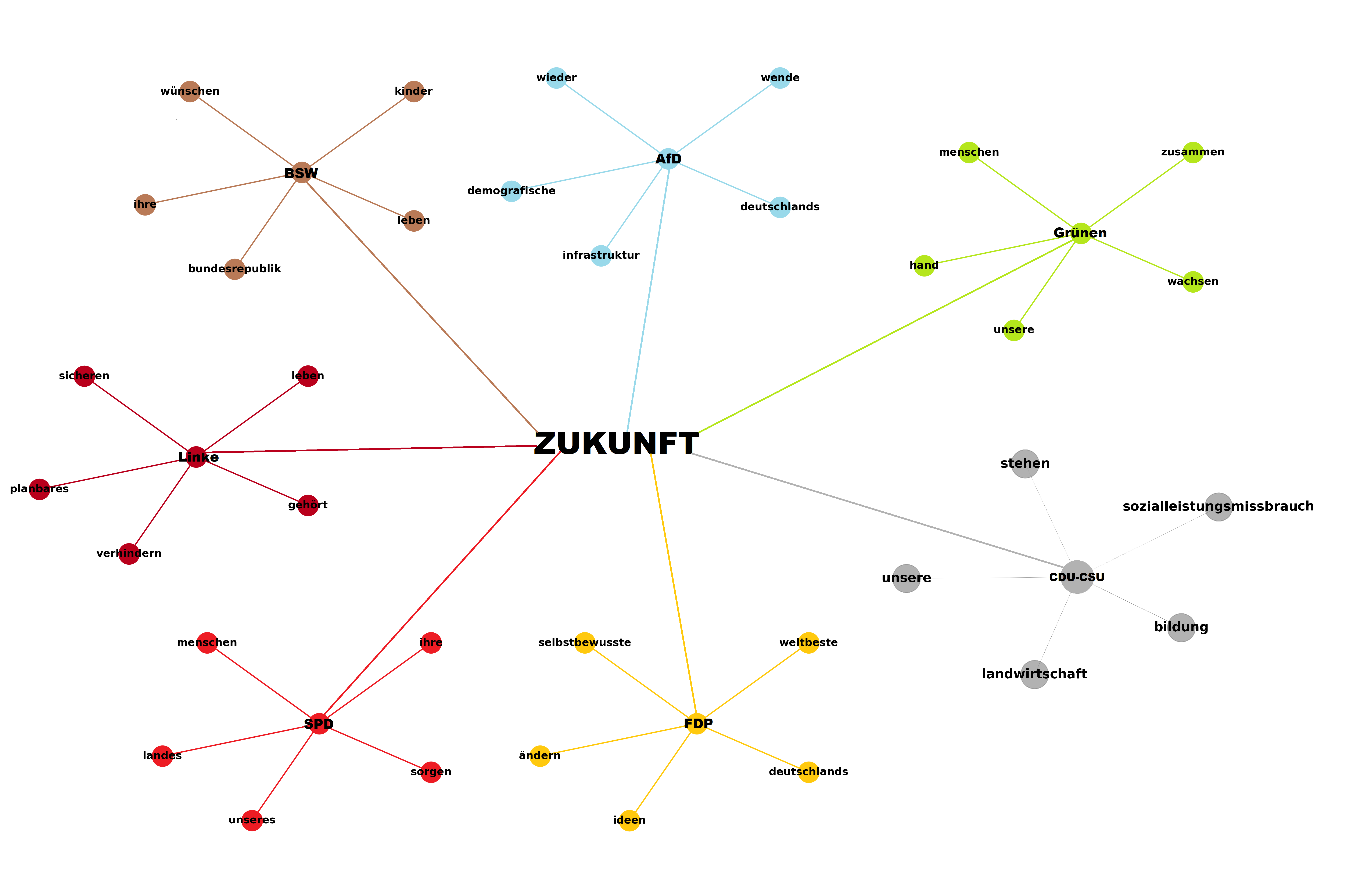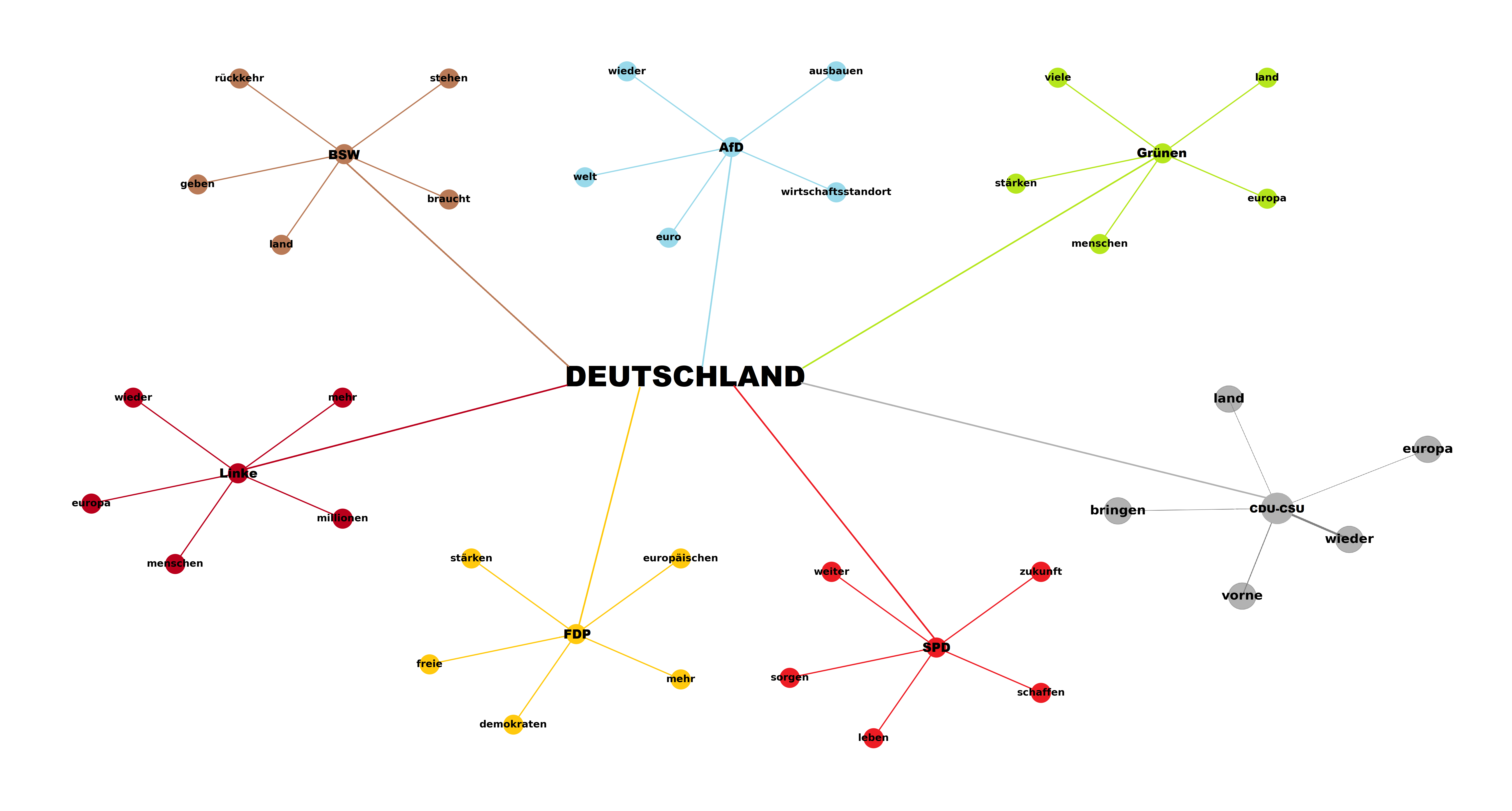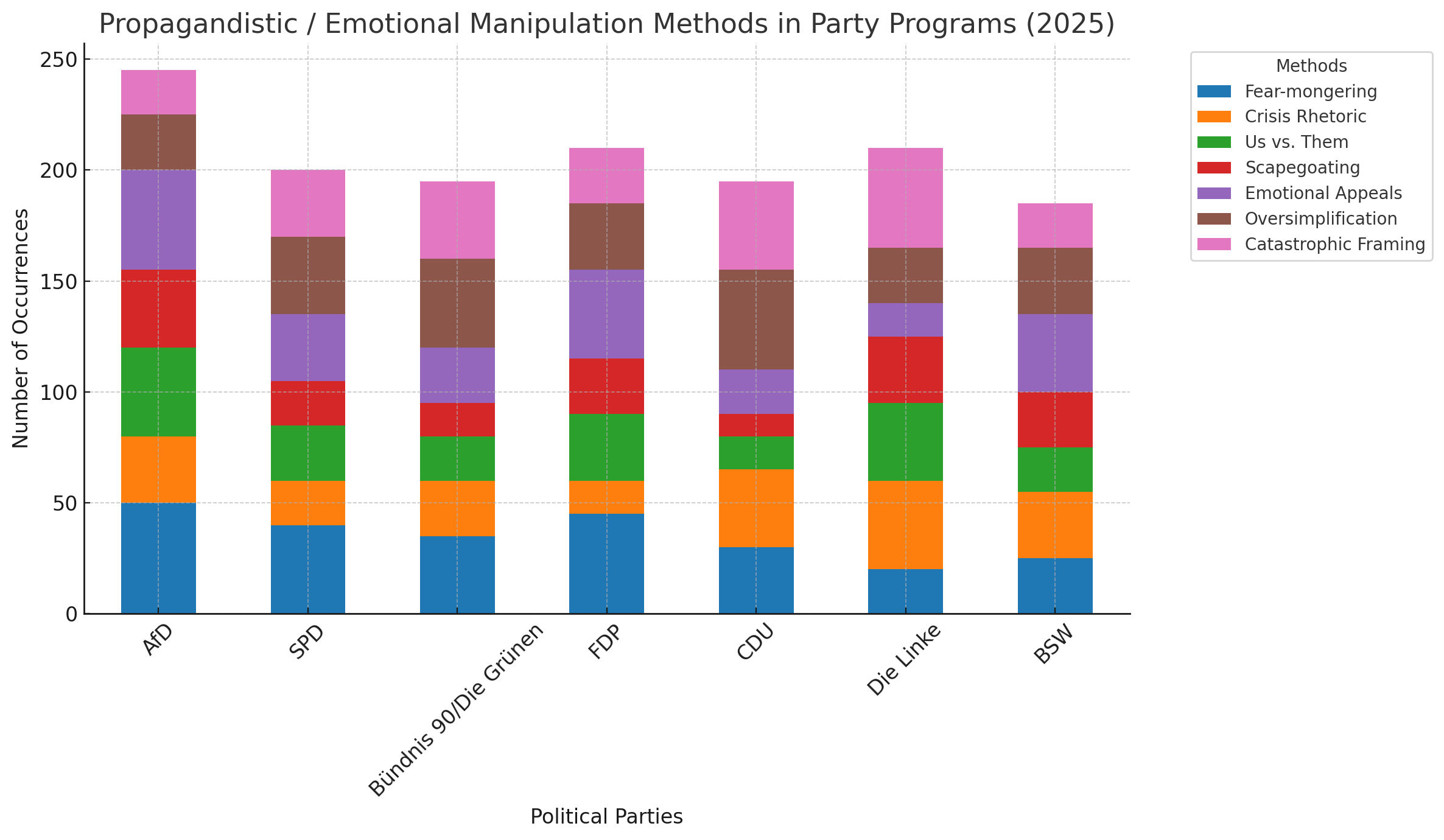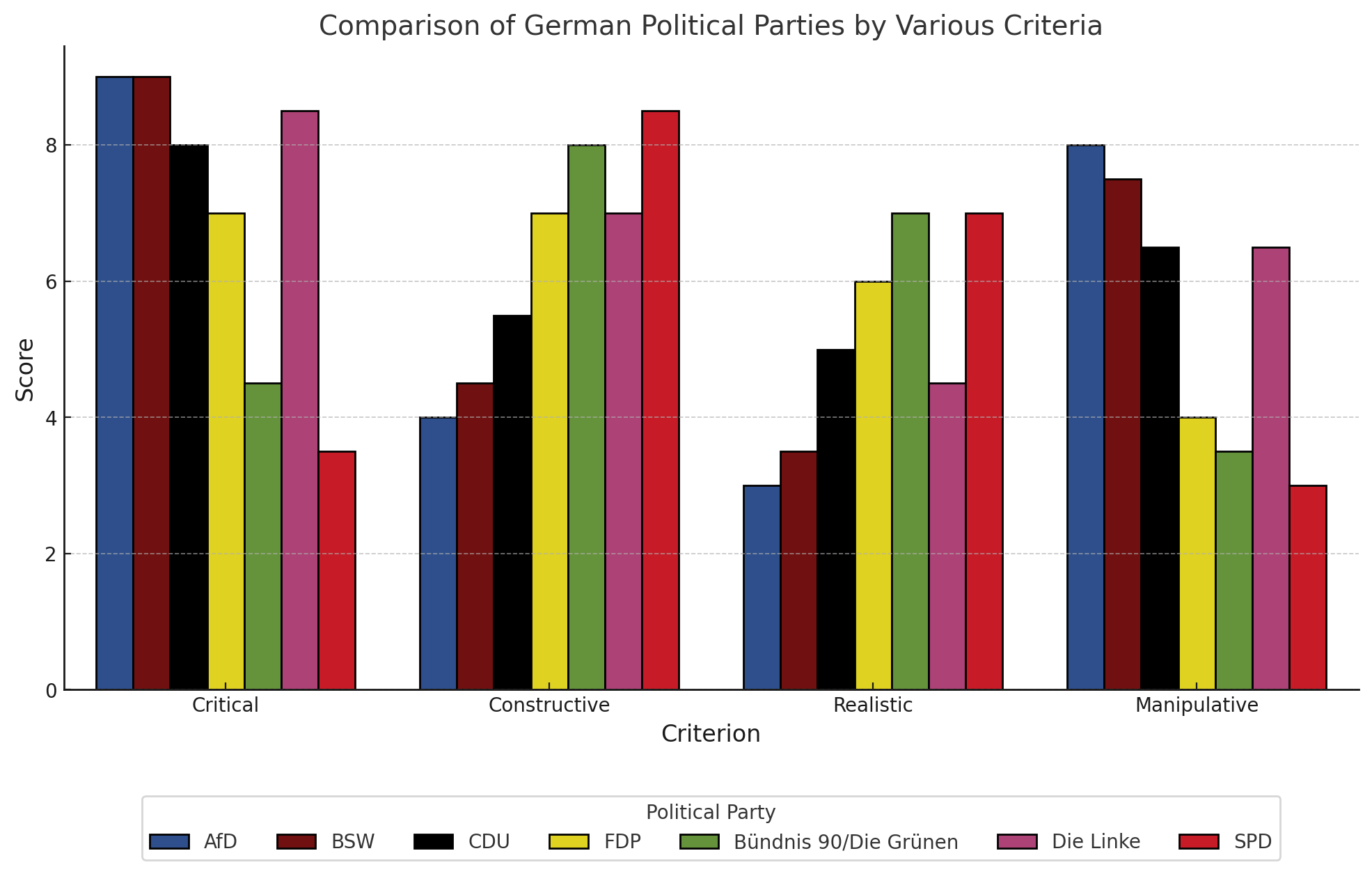Bundestag Elections 2025. Politicians Manipulate You. How to Avoid Their Traps and Vote Wisely in Germany’s 2025 Elections
Why Are These Elections Important for You?
On February 23, 2025, Germany will choose who governs the country for the next four years. These elections will decide taxes, pensions, prices, migration, energy policy, and international relations.
If you live in Germany, pay taxes, and build your future here, this decision directly affects you.
Are you frustrated that you work more but have less money left? Angry that politicians focus on migrants while seemingly ignoring ordinary citizens’ problems? Or have you simply lost trust in politicians who promise one thing before the elections and do another afterward?
That’s why distinguishing truth from manipulation is crucial. Politicians love to say:
❌ “We will lower taxes, raise pensions, invest in the economy, and solve all problems!” (Sounds great, but at whose expense?)
❌ “We will stop migration and protect German jobs!” (Okay, but how? What exactly will change?)
❌ “We will defeat the elites and globalists who are destroying the country!” (Who exactly are these elites, and what will you do with them?)
Simple answers to complex questions are just populism. You are smarter than that. This guide will help you uncover politicians’ manipulations and vote consciously, not emotionally.
Who are we? We are developers and programmers, volunteers from Russia, who research media in our free time at our own expense.
Our methodology. We downloaded publicly available election programs of political parties and analyzed them using artificial intelligence. To ensure neutrality, we instructed AI to remain unbiased and removed party names from the texts. We used two different language models (OpenAI GPT and Anthropic Claude) and only considered results where both models provided matching responses. You can read more about the methodology and view the full report and raw data here. A short version is below.

(Frequent phrases from party programs)

How Do Politicians Manipulate You? (And How to Avoid It)
The main manipulation techniques are: appeal to fear, demonization of opponents, sensationalism, false dilemma, incorrect generalizations, incitement to fear and hatred, creation of uncertainty, use of stereotypes. Politicians resort to these techniques when they have nothing else to say. Here are examples of manipulative techniques that we have found in the election programs of various parties.
🚨 1. Fear-Mongering: “The Country Is in Danger!”
How It Works: Politicians paint a bleak future to make you afraid and seek a “strong leader” to “fix the chaos.”
🔻 Examples from party programs:
- ❌ “Germany is no longer safe due to uncontrolled migration!”
AfD: “In den vergangenen Jahrzehnten wurden die politischen Rahmenbedingungen in Deutschland so ausgestaltet, dass das Land zum Hauptanziehungspunkt insbesondere für Armutsmigranten aus dem Nahen und Mittleren Osten sowie aus Afrika geworden ist.” (“Over the past decades, political conditions in Germany have been shaped in such a way that the country has become a primary destination for poverty migrants from the Middle East and Africa.”)
- ❌ “We are being dragged into a war we don’t want!”
BSW: “Wir sehen mit großer Sorge, wie versucht wird, die Menschen in Deutschland an den Gedanken zu gewöhnen, dass der Krieg irgendwann auch wieder zu uns kommt und dass wir uns darauf vorbereiten könnten.” (“We are deeply concerned about how people in Germany are being conditioned to accept the idea that war might return to us and that we should prepare for it.”)
- ❌ “Oligarchs and corporations are robbing ordinary people!”
Die Linke: “Konzerne wie RWE, Shell und Total haben im Zuge des Ukrainekriegs durch enorme Preissteigerungen Rekordgewinne eingefahren. Sie haben die Krisensituationen und ihre Marktmacht ausgenutzt, um sich auf Kosten der Allgemeinheit zu bereichern.” (“Corporations like RWE, Shell, and Total made record profits by exploiting crises and market power at the expense of society.”)
🛑 How to Avoid This Trap:
✅ Check the numbers. What does the data say? Are there statistics that confirm or disprove such claims? (For example, comparative statistics on the number of crimes committed by migrants and German citizens). Use reliable fact-checking agencies in Germany like Correctiv and dpa-Faktencheck. For up-to-date insights, you can also use Perplexity AI.
✅ Don’t panic. When fear takes over, critical thinking shuts down.
📌 Which Parties Use Fear the Most?
| Party | What Do They Scare You With? | How Often? |
|---|---|---|
| AfD | Migration crisis | Very often |
| BSW | Germany losing control, war | Often |
| Die Linke | Oligarchs ruining the economy | Often |
| FDP & SPD | Climate change | Moderate |
⚔️ 2. Creating Enemies: “Us vs. Them”
How It Works: Instead of offering solutions, politicians blame migrants, elites, foreigners, or businesses.
🔻 Examples from party programs:
- ❌ “The EU is against Germany’s national interests!”
AfD: “Die Vehemenz, mit welcher die Europäische Union die Transformation zum planwirtschaftlichen Superstaat in den letzten Jahren vorangetrieben hat, hat uns zu der Erkenntnis gebracht, dass sich unsere grundlegenden Reformansätze in dieser EU nicht verwirklichen lassen. Wir halten einen Austritt Deutschlands aus der Europäischen Union und die Gründung einer neuen europäischen Gemeinschaft für notwendig.” (“The EU’s push towards a planned economy superstate has shown that our reform ideas cannot be implemented within this EU. We believe Germany should leave the EU and form a new European alliance.”)
- ❌ “NATO is using Germany for its own interests!”
BSW: “Die nach Beginn des Ukrainekriegs verhängten Sanktionen waren ein Konjunkturprogramm für die US-Wirtschaft und ein Killerprogramm für deutsche und europäische Unternehmen.” (“The sanctions imposed after the Ukraine war were an economic boost for the US and a disaster for German and European businesses.”)
- ❌ “Capitalists are getting rich off ordinary people!”
Die Linke: “Einige wenige Großvermögende werden dadurch immer reicher, indem sie die große Mehrheit für sich arbeiten lassen und die Natur hemmungslos ausbeuten und das Klima anheizen.” (“A handful of billionaires get richer by making the majority work for them while ruthlessly exploiting nature and worsening climate change.”)
🛑 How to Avoid This Trap:
✅ Ask: Are they offering solutions or just blaming others?
✅ Remember: Real problems are more complex than “it’s their fault.” Simply blaming someone doesn’t solve anything.
📌 Which Parties Use “Us vs. Them” the Most?
| Party | Who Do They Blame? | How Often? |
|---|---|---|
| AfD | EU, migrants | Very often |
| BSW | NATO, USA | Often |
| Die Linke | The rich, corporations | Often |
| FDP & SPD | No clear “enemy” | Rarely |
🎭 3. Playing with Emotions: “Trust Your Heart, Not Facts!”
How It Works: Instead of presenting concrete plans, politicians appeal to nostalgia, anger, or hope.
🔻 Examples from party programs:
- ❌ “The past was better, let’s return to our roots!”
AfD: “Den Wirtschaftsstandort Deutschland wiederherstellen.” (“Restoring Germany’s economic strength.”)
- ❌ “We need real diplomacy again!”
BSW: “Richtschnur deutscher Außenpolitik müssen wieder realpolitische Erfordernisse statt wirklichkeitsfremder Ideologien sein.” (“German foreign policy must once again be guided by realpolitik rather than ideological illusions.”)
- ❌ “Justice will soon prevail in society!” (How exactly?)
Die Linke: “Unsere Wirtschaftspolitik richtet sich gegen die soziale Spaltung im Land. Wir verlangen Anerkennung und Respekt für alle diejenigen, die unsere Gesellschaft am Laufen halten.” (“Our economic policy fights social inequality. We demand respect for those who keep society running.”)
🛑 How to Avoid This Trap:
✅ If something triggers a strong emotional reaction, pause and think.
✅ Check if their slogans are backed by real, practical steps.
📌 Which Parties Use Emotions the Most?
| Party | Key Message | How Often? |
|---|---|---|
| AfD | Nostalgia for “old Germany” | Very often |
| BSW | “Germany is in danger” | Often |
| Die Linke | “Rich vs. poor,” social justice | Often |
| FDP & SPD | Hope, but with concrete plans | Moderate |
The FDP often warns about a competitiveness crisis and the urgent need for reforms to ensure Germany doesn’t fall behind in the global economy. The SPD, on the other hand, relies on emotional arguments about social justice, emphasizing growing inequality and the need to protect workers.
🔄 4. The False Dilemma: “The Choice Is Only Between A and B”
How It Works: Politicians claim that there are only two possible options when, in reality, multiple solutions exist.
🔻 Examples from party programs:
-
❌ AfD: “Entweder wir stoppen die Masseneinwanderung, oder Deutschland geht unter!”
(“Either we stop mass migration, or Germany will be destroyed!”) -
❌ BSW: “Entweder wir hören auf, Waffen zu liefern, oder wir werden selbst in den Krieg hineingezogen!” (“Either we stop supplying arms, or we will be dragged into war!”)
-
❌ Die Linke: “Entweder wir überwinden den Kapitalismus, oder die soziale Ungerechtigkeit wird immer schlimmer!”
(“Either we end capitalism, or social injustice will continue to grow!”)
🛑 How To Avoid This Trap:
Always ask: Is there a third option?
Check what compromise solutions are possible.
📢 5. Incorrect Generalization: “All X Are Like That!”
How It Works: Politicians use broad generalizations to manipulate your emotions.
🔻 Examples from party platforms:
-
❌ “All migrants are a threat to Germany!”
-
❌ “All mainstream media lie!”
-
❌ “The rich always exploit the poor!”
🛑 How To Avoid This Trap:
✅ Check: Is there any statistical evidence supporting the claim?
✅ Avoid all-or-nothing thinking.
#### 📌 Which Parties Use Incorrect Generalization the Most?
| Party | Main Generalization | How Often Used? |
|---|---|---|
| AfD | “All migrants are a threat” | Very often |
| BSW | “All media lie” | Often |
| Die Linke | “All rich people exploit the poor” | Often |
🌀 6. Creating Uncertainty: “The Future Is Unknown, But It Will Definitely Be Bad!”
How It Works: Politicians use fear of uncertainty to manipulate voters.
🔻 Examples from party programs:
-
❌ “German culture is under threat!”
-
❌ “If we continue like this, we will soon be a poor country!”
🛑 How To Avoid This Trap:
✅ Check: Do politicians provide real forecasts, or are they just spreading panic?
✅ See if they have a concrete action plan.
📌 Which Parties Use Uncertainty the Most?
| Party | Main Fear Narrative | How Often Used? |
|---|---|---|
| AfD | “German culture will disappear” | Very often |
| BSW | “If nothing changes, we will be poor” | Often |
| Die Linke | “The rich will take over the economy” | Often |


How to Vote Wisely, Not Emotionally?
- Identify What Matters Most to You.
✅ Do you prefer lower taxes or higher pensions?
✅ Are you in favor of strict immigration policies or controlled integration?
✅ Do you want Germany to reduce its role in NATO or strengthen its defense?
- Critically Evaluate Who Offers Solutions and Who Seeks Scapegoats.
📌 Which Parties Offer Real Solutions, and Which Distract from Problems?
| Party | Concrete Ideas? | Distracting Topics |
|---|---|---|
| AfD | Tax policies | Migration and the EU |
| BSW | Pension reform proposals | NATO, war |
| CDU | Clear tax plans | Fearmongering about national decline |
| FDP & SPD | Detailed programs | Rarely use distraction tactics |
| Bündnis 90/Die Grünen & Die Linke | Strong social programs | Promises without clear financial backing |
Which Parties Presented the Most Well-Structured Programs?
Not all election programs are equally well-prepared. Some are filled with slogans and emotions, while others present a clear vision with well-thought-out measures. Which parties provide real concepts with calculated funding, clear goals, and actionable plans? Let’s set slogans aside and focus on the facts.
🔍 Best Programs: Structure, Clarity, and Realism
| Party | Strengths of the Program | Examples of Measures and Specifics |
|---|---|---|
| CDU | Clear economic and energy policies, specific measures, well-planned funding sources | ✅ Tax exemptions for overtime to increase net income ✅ Digital transformation with the creation of a Ministry for Digitalization ✅ Research into next-generation nuclear energy |
| SPD | Focus on investments, a good balance between social policies and economics, realistic approach to migration and energy | ✅ Investment incentives for businesses under the “Made in Germany” model ✅ Development of renewable energy with stability guarantees ✅ Targeted migration strategy to attract skilled workers |
| Bündnis 90/Die Grünen | Well-developed climate policy, structured tax and social systems, digitalization, and bureaucracy reduction | ✅ Support for climate-neutral industry without harming the economy ✅ Clear investment strategy in education, research, and digitalization ✅ Comprehensive housing construction plan with realistic funding |
| FDP | Transparent economic approach, tax reform, pragmatic policies | ✅ Tax incentives for investment and bureaucracy reduction ✅ Focus on innovation and digitalization as growth drivers ✅ Realistic migration policy |
📊 1. Structure and Clarity
These parties present programs that not only make promises but also explain:
- What they aim to do? (goals and measures)
- How they will fund it? (budget planning)
- What the consequences will be? (long-term effects)
🔹 CDU and SPD propose clear economic concepts, balancing tax cuts with investments.
🔹 Bündnis 90/Die Grünen uses a structured approach to climate and social policy, with a detailed industry modernization plan.
🔹 FDP focuses on market-driven solutions, innovation, and tax reform, with specific steps.
💰 2. Financing: Who Spends How Much – and Where Does the Money Come From?
A good election program can be recognized by the fact that it not only makes promises but also explains how expenses will be covered.
✅ CDU, FDP, and SPD clearly explain where the money for investments will come from—through tax incentives, bureaucracy reduction, or targeted investments.
✅ Bündnis 90/Die Grünen uses a combination of government funding and market instruments.
❌ Die Linke remains vague: they make bold promises but without clear sources of financing.
📌 Conclusion: Which Party Has the Most Professional Election Program?
🏆 CDU and SPD – Clear Concepts, Realistic Measures
✔️ Structured economic policy with a pragmatic approach.
✔️ Well-planned tax and investment strategy.
✔️ Clear priorities in industry, digitalization, and energy.
💡 Bündnis 90/Die Grünen – Detailed Climate Program with a Realistic Approach
✔️ Concrete reforms in environmental policy.
✔️ Good balance between social measures and market instruments.
📈 FDP – Effective Economic Policy with a Liberal Focus
✔️ Tax incentives, digitalization, and migration reforms.
🤔 What About the Others?
Although AfD, BSW, and Die Linke also propose many ideas, they often lack a clear financing strategy or a realistic plan. Die Linke focuses on emotional slogans (“redistribute wealth”) but without concrete mechanisms for implementation. BSW concentrates on geopolitical threats, while AfD primarily focuses on migration and criticizing the EU.
🔹 If well-thought-out concepts matter to you, it is best to review the programs of CDU, SPD, Bündnis 90/Die Grünen, and FDP.
Your Vote – Your Power.
💡 Think for yourself. Politicians want to manipulate your emotions—don’t fall for it.
💡 Compare promises with actual plans. If a party only spreads fear, it likely has no solutions.
💡 Look at their track record. Have they kept their word before?
✅ On February 23, 2025, the choice is yours. Conscience and reason are stronger than fear and hatred. Vote smart!